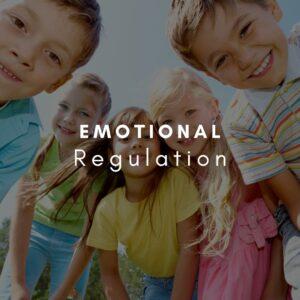Becoming a Registered Behavior Technician (RBT) is an empowering journey that combines the joy of helping others with the satisfaction of developing professional skills in the field of applied behavior analysis (ABA). If you’re considering a career that makes a tangible difference in people’s lives, especially those with autism and related developmental disorders, the RBT certification is a wonderful starting point.
What is an RBT?
A Registered Behavior Technician (RBT) is a certified paraprofessional who works under the supervision of a Board Certified Behavior Analyst (BCBA) or a Board Certified Assistant Behavior Analyst (BCaBA). RBTs are responsible for implementing behavior intervention plans, collecting data on client progress, and helping clients develop essential skills to improve their quality of life.
Steps to Becoming an RBT
1. Meet the Eligibility Requirements:
• Age: You must be at least 18 years old.
• Education: A high school diploma or equivalent is required.
• Background Check: You need to pass a criminal background check.
2. Complete the 40-Hour Training:
This training covers the RBT Task List and is usually conducted online or in a classroom setting. Topics include measurement, assessment, skill acquisition, behavior reduction, documentation and reporting, and professional conduct. Many organizations offer this training, and it’s designed to provide you with the foundational knowledge you’ll need.
3. Pass the Competency Assessment:
After completing your training, a BCBA or BCaBA will assess your competency through a direct observation of your skills. This assessment includes both interview and role-playing scenarios to ensure you’re ready to implement behavior plans effectively.
4. Apply to Take the RBT Exam:
Once you’ve successfully completed the training and competency assessment, you can apply for the RBT exam through the Behavior Analyst Certification Board (BACB). The application process involves submitting proof of your completed training and assessment, as well as a processing fee.
5. Pass the RBT Exam:
The final step is passing the RBT exam, which tests your knowledge and understanding of the principles and practices of applied behavior analysis.
The Rewards of Becoming an RBT
Making a Difference: As an RBT, you have the opportunity to make a significant impact on the lives of your clients. By helping individuals develop important skills and reduce challenging behaviors, you contribute to their overall well-being and ability to thrive in their environments.
Personal Growth: Working as an RBT fosters personal growth and development. You’ll gain valuable skills in behavior analysis, communication, and problem-solving. The hands-on experience you acquire will enhance your professional capabilities and prepare you for future career opportunities.
Career Advancement: The field of behavior analysis offers numerous opportunities for career advancement. Many RBTs choose to further their education and become BCBAs. Pursuing a graduate degree in behavior analysis, completing supervised fieldwork, and passing the BCBA certification exam can lead to a higher level of responsibility and autonomy in the field.
Professional Satisfaction: Seeing the progress and achievements of your clients provides a sense of accomplishment and professional fulfillment. Each milestone reached by a client is a testament to your dedication and expertise.
Is Becoming an RBT Right for You?
If you have a passion for helping others, a strong work ethic, and an interest in behavior analysis, becoming an RBT might be the right career choice for you. The role requires patience, empathy, and the ability to work well under supervision. It’s important to be comfortable working one-on-one with clients, often in a variety of settings such as homes, schools, and clinics.
The journey to becoming an RBT involves dedication and commitment, but the rewards are well worth the effort. You’ll be entering a field that not only offers immediate job satisfaction but also provides opportunities for growth and advancement. Whether you choose to remain an RBT or pursue further certification as a BCBA, your work will continue to make a significant difference in the lives of individuals with developmental disorders.
In conclusion, becoming an RBT is a fulfilling and impactful career choice. The role allows you to make a tangible difference in the lives of your clients while also providing opportunities for personal and professional growth. If you’re ready to embark on a rewarding journey in the field of behavior analysis, consider taking the steps to become an RBT.
Keywords:
Registered Behavior Technician | RBT certification | Applied Behavior Analysis | ABA | Behavior intervention plans | BCBA | Behavior Analyst Certification Board | BACB | RBT training | RBT exam | Autism spectrum disorder | Career in behavior analysis | RBT career advancement | Behavior reduction techniques | Skill acquisition | Personal growth in ABA | Professional development in ABA | Becoming a BCBA | Helping individuals with developmental disorders | RBT competency assessment





